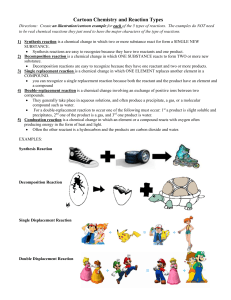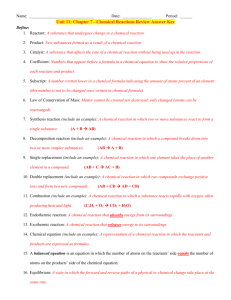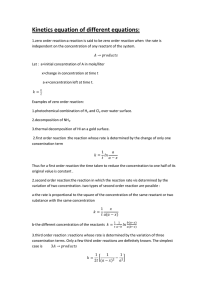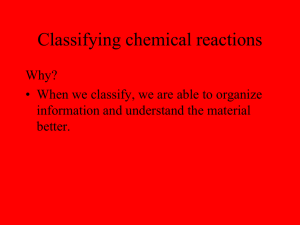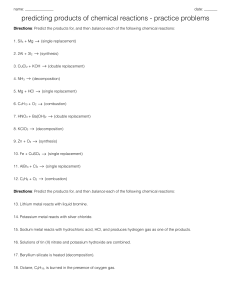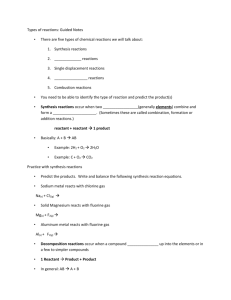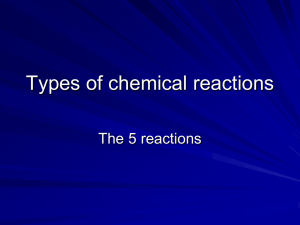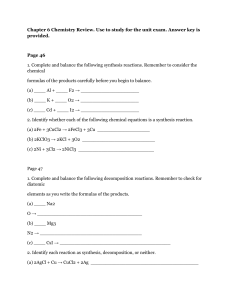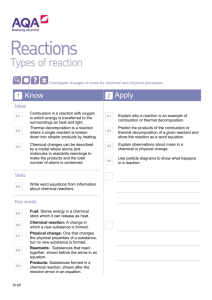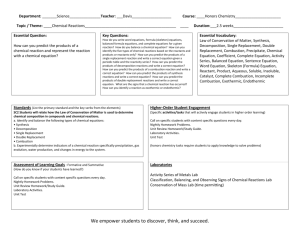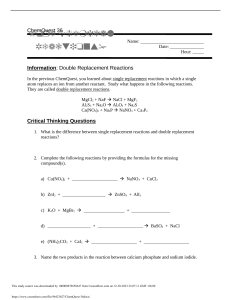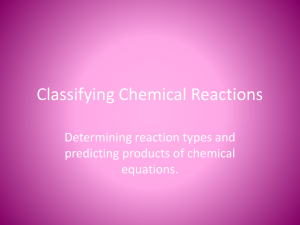Cartoon Chemistry and Reaction Types
advertisement
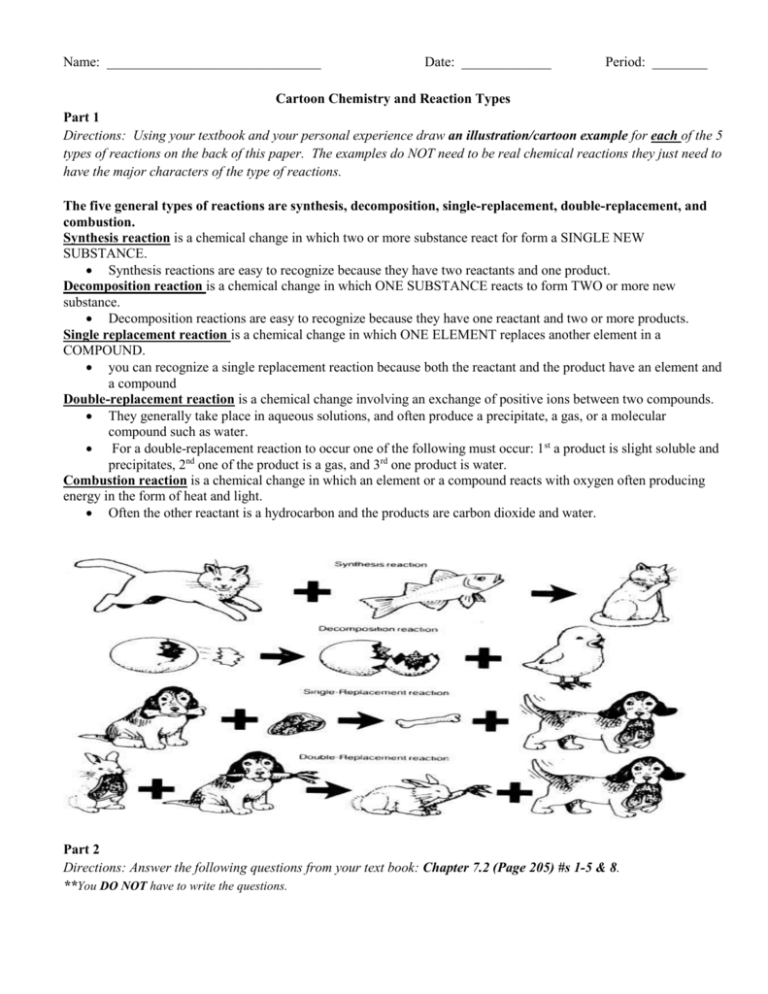
Name: _______________________________ Date: _____________ Period: ________ Cartoon Chemistry and Reaction Types Part 1 Directions: Using your textbook and your personal experience draw an illustration/cartoon example for each of the 5 types of reactions on the back of this paper. The examples do NOT need to be real chemical reactions they just need to have the major characters of the type of reactions. The five general types of reactions are synthesis, decomposition, single-replacement, double-replacement, and combustion. Synthesis reaction is a chemical change in which two or more substance react for form a SINGLE NEW SUBSTANCE. Synthesis reactions are easy to recognize because they have two reactants and one product. Decomposition reaction is a chemical change in which ONE SUBSTANCE reacts to form TWO or more new substance. Decomposition reactions are easy to recognize because they have one reactant and two or more products. Single replacement reaction is a chemical change in which ONE ELEMENT replaces another element in a COMPOUND. you can recognize a single replacement reaction because both the reactant and the product have an element and a compound Double-replacement reaction is a chemical change involving an exchange of positive ions between two compounds. They generally take place in aqueous solutions, and often produce a precipitate, a gas, or a molecular compound such as water. For a double-replacement reaction to occur one of the following must occur: 1st a product is slight soluble and precipitates, 2nd one of the product is a gas, and 3rd one product is water. Combustion reaction is a chemical change in which an element or a compound reacts with oxygen often producing energy in the form of heat and light. Often the other reactant is a hydrocarbon and the products are carbon dioxide and water. Part 2 Directions: Answer the following questions from your text book: Chapter 7.2 (Page 205) #s 1-5 & 8. **You DO NOT have to write the questions. Part 1 Synthesis: Decomposition: Single Replacement: Double Replacement: Combustion:
